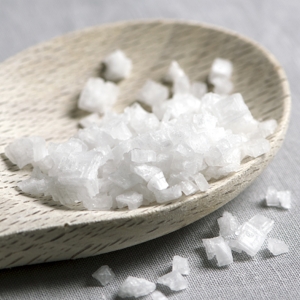We’ve been hearing for years that too much Salt is bad for you, specifically for your heart. But doctors, nutritionists and other ‘experts’ have disagreed about how much is too much. Finally, a survey led by a team from McMaster University in Canada has come up with a conclusive answer…
 Just one vector on which we regularly get Salt in our diets…
Just one vector on which we regularly get Salt in our diets…
What they did…
The McMaster team, in partnership with other researchers from 18 countries around the world, followed more than 94,000 subjects for an average of 8 years, tracking their Salt consumption and their medical histories. What. they discovered contradicted the prevailing notion that the existing rule, that ‘less Salt is better’.
What they found…
The researchers discovered that the existing official recommendation, that adults consume no more than 1.25 tsp. / 2.3 g of Salt a day, may be unnecessarily conservative. The study revealed that there was no increased risk of developing cardio-vascular disease or stroke in those who did not exceed a 2.5 tsp. / 5 g upper limit.
In fact, researchers found that the vast majority of subjects in their survey consumed an average of at least 1.5 tsp. / 3 g of Salt a day but did not exceed the 2.5 tsp. / 5 g limit.
Only in China did a majority of study subjects – 80 per cent – exceed the 2.5 tsp. / 5 g limit. And there, researchers did find a direct link between sodium intake and major cardiovascular events.
What it means…
As I said earlier, it seems that the prevailing official recommendations for Salt consumption are somewhat conservative.
“Public health strategies should be based on best evidence. Our findings demonstrate that community-level interventions to reduce sodium intake should target communities with high sodium consumption, and should be embedded within approaches to improve overall dietary quality,” said study report Lead Author Martin O’Donnell. “There is no convincing evidence that people with moderate or average sodium intake need to reduce their sodium intake for prevention of heart disease and stroke.”
My take…
The fact is, some age groups and demographic profiles consume a lot more Salt than others, even in our civilized, modern world. Or, maybe, it’s because our ‘modern’ food culture, in which fast food and prepared/processed foods have become ubiquitous. There’s no better way to binge out on Salt than to habitually order the biggest thing on the menu at your fave Burger Bar. With nice, salty Fries, of course!
But I, for one, will sleep better knowing that exceeding the official daily recommendation for Salt intake just a little, now and then, won’t put me at any greater risk of heart disease and stroke than I already am, thanks to my genes and my lifestyle!
~ Maggie J.

